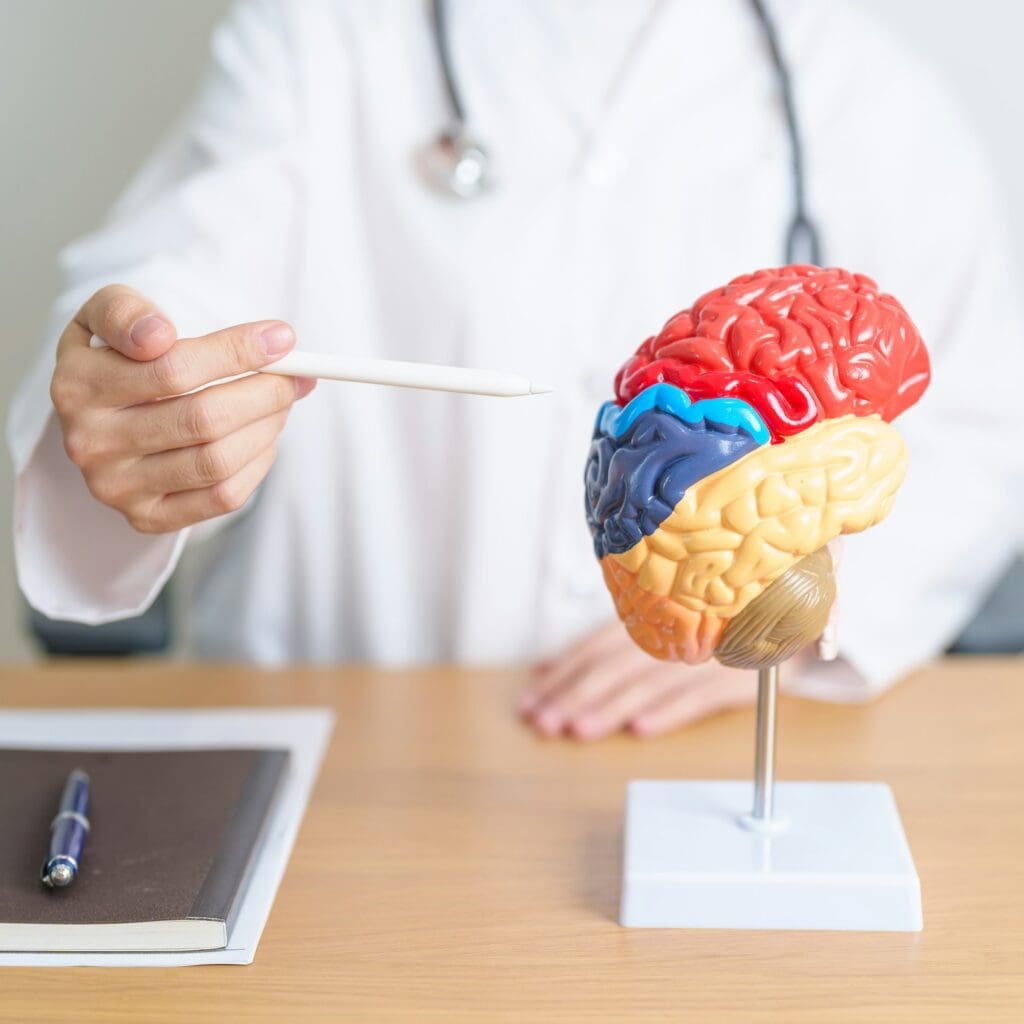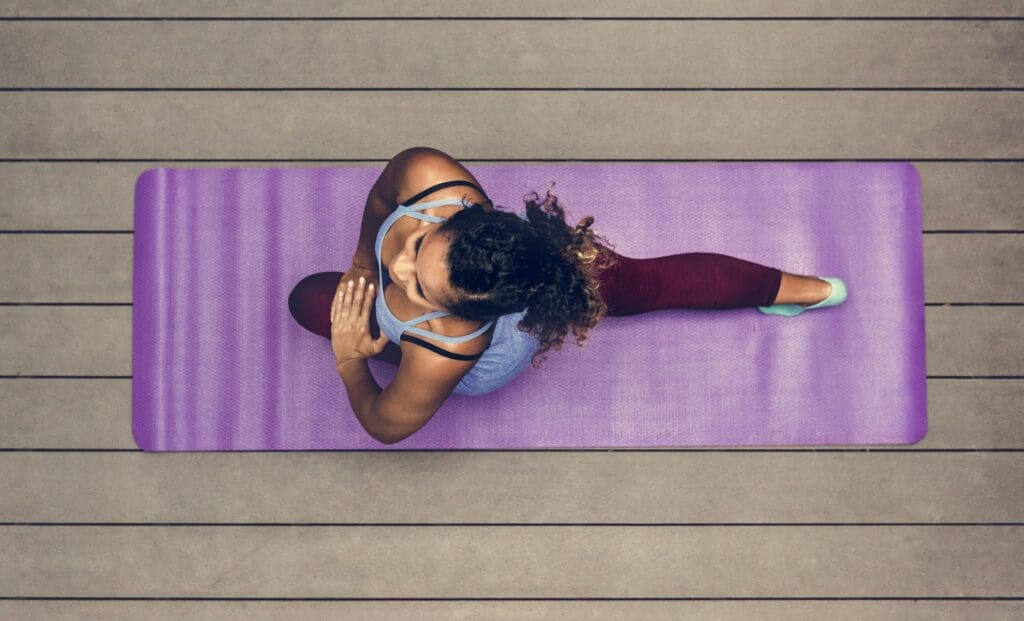


Imagine waking up each day feeling calm, focused, and ready to tackle whatever comes your way. This ideal start to your morning is more accessible than you might think—and it begins with mindfulness. Integrating mindful practices into your daily routine can lead to an array of benefits, both mental and physical, that can transform your life in subtle but profound ways.
“Mindfulness is the art of paying attention, on purpose, to the present moment, without judgment.”
By embracing mindfulness, you open the door to a more balanced and harmonious existence. This can help you to counter stress, enhance your well-being, and even improve your productivity. Let’s dive into some compelling reasons why you should consider making mindfulness a staple in your daily life.

Mindfulness, at its core, is the practice of purposely focusing your attention on the present moment and accepting it without judgment. Imagine sitting quietly and feeling the rise and fall of your breath without labeling the experience as good or bad.
It’s about becoming acutely aware of your surroundings, thoughts, and feelings without getting caught up in them. This ancient practice has roots in Buddhist meditation, but in modern times, it has taken on a new life in various secular settings.
Why does this matter? The answer lies in our often chaotic, stress-laden lives. We frequently juggle multiple responsibilities, leaving little room for mental downtime.
Here, mindfulness steps in as an anchor for our thoughts. By gently bringing your mind back to the present, you create a sanctuary of calm in the middle of everyday turbulence. It’s a small yet profound shift that can significantly impact your overall well-being.
Moreover, mindfulness doesn’t just pause the whirlwind of daily activities; it transforms your relationship with them. For instance, think about your morning commute.
Instead of stressing over traffic, what if you used that time to observe your breathing, acknowledge your surroundings, or simply appreciate the moment? This shift can turn mundane routines into opportunities for mental clarity and emotional stability.
Understanding the science behind mindfulness can truly enhance your appreciation of this practice. At its core, mindfulness involves paying attention to the present moment, purposefully and without judgment. This seemingly simple act has profound effects on the brain and body.

In recent years, researchers have delved deep into the workings of mindfulness, uncovering fascinating insights. For starters, mindfulness affects the brain’s structure and function.
Regular practice can strengthen the prefrontal cortex, which is the area responsible for executive functions such as decision-making, attention, and self-control. Additionally, it can decrease the size and activity of the amygdala, the brain’s emotional processing center, which is associated with stress and anxiety.
The impact extends beyond the brain. Mindfulness has been shown to lower the levels of cortisol, the primary stress hormone. Lower cortisol levels mean reduced stress and a better overall sense of well-being. Moreover, engaging in mindfulness can boost the immune system, making you more resilient to illness.
A remarkable aspect of mindfulness is its ability to induce a state of relaxation. When you focus on the present moment, it allows your mind to break free from the patterns of worry and rumination that often drive stress.
This state of relaxation can lead to a cascade of positive physiological responses, including lower heart rate, reduced blood pressure, and improved digestion.
So, how does mindfulness achieve all these benefits? It revolves around the principles of neuroplasticity—our brain’s ability to reorganize itself by forming new neural connections.
In essence, the science of mindfulness shows us that this practice is much more than a fleeting trend. It’s a powerful tool grounded in substantial research, capable of transforming both mental and physical health. Integrating mindfulness into your daily routine offers a natural and effective way to enhance your quality of life.
Imagine starting your day with a sense of calm and clarity, regardless of what lies ahead. That’s the promise of mindfulness. By incorporating mindfulness into your daily routine, you’re opening the door to a multitude of benefits that can significantly enhance your quality of life.
From boosting cognitive abilities to enhancing emotional regulation, mindfulness offers a holistic approach to well-being. But what exactly can you expect when you make mindfulness a regular part of your life? Let’s dive in and explore the myriad ways mindfulness can benefit you.

Embarking on a journey toward better wellness involves embracing practices that nurture both your mind and body. Mindfulness is one such powerful technique that can seamlessly fit into your daily routine, promoting a sense of calm and clarity. Let’s delve into simple yet effective ways to weave mindfulness into the fabric of your everyday life, enhancing your overall well-being.
Mindfulness has increasingly been recognized for its profound impact on mental health. Numerous studies reveal that this practice can significantly alleviate symptoms of depression, anxiety, and other mental health disorders.
By focusing on the present moment, you eliminate the noise of past regrets and future worries, enabling a more stable mental state.
Incorporating mindfulness can enhance your emotional regulation. When you’re mindful, you become more attuned to your emotions without becoming overwhelmed or reactive.
This emotional awareness allows you to handle stressful situations more effectively and respond to life’s challenges with calm and clarity.

One of the most compelling benefits of mindfulness is its ability to reduce stress levels. Regular mindfulness practice can lead to lower cortisol levels—the hormone associated with stress. This reduction can have a cascading effect, improving your overall physical health and well-being.
Moreover, mindfulness has been shown to improve cognitive functions such as attention, focus, and memory. When your mind is uncluttered by stress and anxiety, you have more mental bandwidth to concentrate on tasks and retain information. This sharpens your cognitive abilities and enhances your productivity.
For those struggling with substance abuse or eating disorders, mindfulness can offer valuable support. By fostering a non-judgmental awareness of cravings and habitual responses, you can break free from destructive patterns and make healthier choices.
Finally, mindfulness promotes stronger relationships. By being fully present during interactions, you cultivate deeper connections with others. This fosters empathy, understanding, and a genuine sense of connectedness, enriching your personal and professional relationships.
Staying consistent with your mindfulness practice can be challenging, especially when life gets busy. But the rewards are worth it. Here are some tips to help you stay on track:
Consistency is key, but it’s also important to be kind to yourself throughout this journey. Over time, these small steps can lead to big changes in your overall well-being.
Monitoring your journey with mindfulness is crucial to understanding its benefits and making adjustments to fit your needs better. Here’s how you can track your progress effectively:
Journaling Your Experience: Record your thoughts, feelings, and any noticeable changes in your behavior or reactions. Over time, this can reveal patterns and progress that might not be immediately obvious.
Regular Self-Assessments: These assessments can help you gauge increases in your awareness, attention, and overall emotional well-being. Tools such as the Mindfulness Attention Awareness Scale (MAAS) can be particularly useful.
Feedback from Others: Soliciting feedback from trusted friends, family, or colleagues can provide valuable insights into how your mindfulness practice is affecting your interactions and relationships.
Monitoring Physical Changes: Keep an eye on physiological indicators such as sleep patterns, stress levels, and overall energy. Many practitioners report improvements in these areas after maintaining a consistent mindfulness routine.
Setting and Reviewing Goals: Whether it’s reducing stress, improving focus, or enhancing emotional resilience, having clear objectives helps you stay motivated and provides a benchmark for progress. Regularly review and adjust these goals as needed.
Mindfulness Apps and Technology: These tools can provide structured ways to visualize your progress, remind you to stay consistent, and even offer guided practices. Many apps offer progress reports and insights based on your activity.
Absolutely! Incorporating mindfulness into your daily routine can significantly reduce stress and anxiety. Mindfulness helps by promoting an adaptive response to daily stressors, enabling you to manage your emotions better.
When you’re mindful, you become more aware of your thoughts and feelings, which allows you to approach them with acceptance and without judgment. This self-awareness can lead to a calmer state of mind, as you learn to react to situations more thoughtfully rather than impulsively.
In fact, studies have shown that mindfulness-based therapies are highly effective in treating anxiety. Techniques like Mindfulness-Based Stress Reduction (MBSR) have demonstrated success in reducing not only anxiety but also symptoms of depression.
By helping you stay grounded in the present moment, mindfulness can help alleviate the overwhelming feelings that often contribute to stress and anxiety.
In short, mindfulness equips you with the tools to handle life’s pressures more gracefully, thereby reducing the negative emotional impact they may have.
Practicing mindfulness can significantly enhance your mental clarity and focus. By regularly engaging in mindfulness exercises, you train your brain to stay in the present moment, reducing the noise and distractions that often cloud your thoughts. This sharpened awareness helps improve sustained attention, allowing you to concentrate better on tasks at hand.
One mechanism behind this improvement comes from mindfulness’s effect on cognitive flexibility—the ability to switch between thinking about different concepts or to think about multiple concepts simultaneously.
Additionally, mindfulness encourages cognitive inhibition, which is the capacity to ignore irrelevant stimuli. This means you’re less likely to be derailed by distractions, boosting your overall focus.
Moreover, mindfulness has been shown to enhance working memory, which is crucial for tasks that require holding and manipulating information over short periods. By decreasing proactive interference—the phenomenon where old memories inhibit the retrieval of new ones—mindfulness aids in clearing your mental cache, so to speak. The end result is a mind that is both clearer and more focused.
Incorporating mindfulness into your daily routine can have a profound impact on your physical health. By actively reducing stress and anxiety, mindfulness helps lower blood pressure and improves heart health.
Research shows that mindfulness practices can also alleviate chronic pain and enhance the quality of your sleep. These physical benefits are linked to the practice’s ability to calm the nervous system and promote a state of relaxation.
Mindfulness encourages you to maintain healthier habits. You’ll likely notice an improvement in your overall lifestyle, such as getting regular health check-ups, exercising more, and quitting harmful habits like smoking or excessive drinking. By fostering a greater awareness of your body’s signals, mindfulness makes it easier to adopt a balanced diet and maintain a healthier body mass index (BMI).
Significantly, mindfulness also supports the management of various health conditions. Regular practice can help ease symptoms associated with lower back pain, rheumatoid arthritis, psoriasis, Type 2 diabetes, and fibromyalgia. Whether you aim to improve general well-being or manage specific health issues, mindfulness offers a holistic approach to enhancing physical health.
Absolutely, mindfulness is not only suitable but highly beneficial for children and teenagers. Implementing mindfulness practices can greatly improve various aspects of their lives.
For example, studies show that incorporating mindfulness into school routines can help enhance academic performance, reduce stress, and improve emotional well-being. Programs tailored to kids and teens have shown success in lowering anxiety, depression, and problem behaviors while fostering social-emotional resilience.
Whether through simple breathing exercises, mindful walking, or structured programs, mindfulness supports better focus, emotional regulation, and overall mental health, making it an excellent tool for young people navigating the challenges of growing up.
Mindfulness plays a vital role in emotional regulation by helping you to recognize and understand your emotions without judgment.
When you’re mindful, you become more aware of your emotional responses in real-time, which gives you the ability to pause and choose how to react, rather than being driven by automatic or habitual reactions.
This awareness allows for better control over your emotions, making it easier to navigate through challenging situations with a calm and balanced mindset.
Additionally, mindfulness helps to create a space between the stimulus (what’s happening to you) and your response (how you react), enabling more thoughtful and deliberate reactions. Over time, this practice can lead to improved mood, enhanced empathy, and better overall emotional health.
Researchers have found that people who practice mindfulness regularly are better equipped to manage their emotions and experience fewer difficulties in regulating their emotional states.
Incorporating mindfulness into your daily routine can undoubtedly transform various aspects of your life. From enhancing your mental well-being to improving interpersonal relationships, the benefits are manifold and well-documented.
Scientific studies have shown statistically significant results, demonstrating that mindfulness practices lead to positive effects on both mental and physical health.
Moreover, by making mindfulness a consistent part of your day, you can develop a deeper sense of self-awareness and a stronger connection to the present moment. This can make you less emotionally reactive and more equipped to handle life’s challenges with a calm and balanced approach.
Remember, the journey to mindfulness is personal and unique; there’s no one-size-fits-all approach. Whether you start with guided meditations, mindful breathing exercises, or simply by observing your thoughts without judgment, the important thing is to stay committed and open to the experience.
Over time, you’ll likely notice a profound shift in your perspective and an overall improvement in your quality of life.
So, why not take the first step today? Your future self will thank you.









